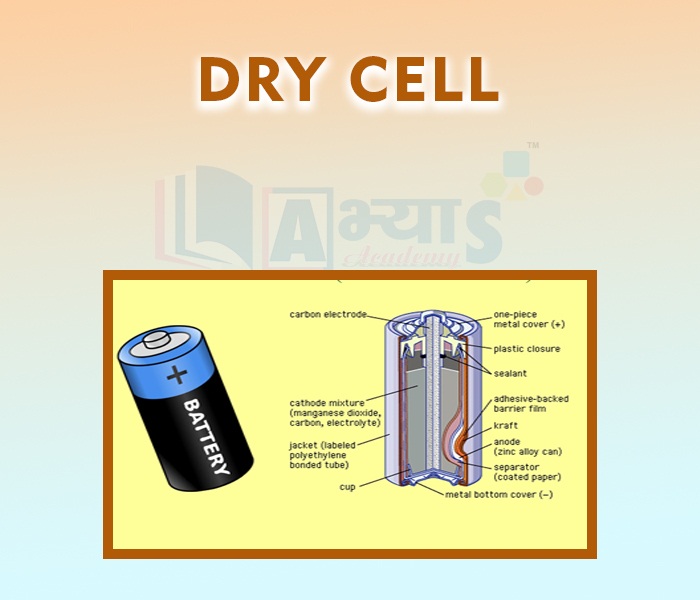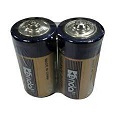Dry Cell












Dry Cell
A cell is an arrangement in which chemical energy is converted into electrical energy. In a cell chemical are stored. When used, the chemical reactions occur in the cell produce electricity. A dry cell is one type of electric battery, which is generally used for the home and portable electronic devices. Cells can be of two types :
Dry Cell:
A dry cell is a very convenient source of electric current. The dry cell, as its name suggests, contains dry or semi- solid ingredients.
Every source of electric current has two ends or terminal where conducting wires are connected to draw electric current. The tip of the metal cap and the base of the zinc can act as the positive and negative terminals of the dry cell, respectively.

Advantages of a Dry Cell:
1. Dry cells are light in weight and small size.
2. Dry cells can be transported from place to another very easily.
3. There is no fear of leakage in dry cells.
4. They can easily be used to run electrical devices.
5. These cells are used in a number of house hold gadgets like a radio, a transistor tape- recorder, a calculator, a clock, the remove of a T.V., torch, toys, etc.
An electric cell has _______________ | |||
| Right Option : B | |||
| View Explanation | |||
Which one of the following is not a component of dry cell? | |||
| Right Option : B | |||
| View Explanation |
Powdered carbon used in dry cell helps to __________________ | |||
| Right Option : C | |||
| View Explanation | |||
Students / Parents Reviews [10]
A marvelous experience with Abhyas. I am glad to share that my ward has achieved more than enough at the Ambala ABHYAS centre. Years have passed on and more and more he has gained. May the centre flourish and develop day by day by the grace of God.

Archit Segal
7thBeing a parent, I saw my daughter improvement in her studies by seeing a good result in all day to day compititive exam TMO, NSO, IEO etc and as well as studies. I have got a fruitful result from my daughter.

Prisha Gupta
8thMy experience was very good with Abhyas academy. I am studying here from 6th class and I am satisfied by its results in my life. I improved a lot here ahead of school syllabus.

Ayan Ghosh
8thAbout Abhyas metholodology the teachers are very nice and hardworking toward students.The Centre Head Mrs Anu Sethi is also a brilliant teacher.Abhyas has taught me how to overcome problems and has always taken my doubts and suppoeted me.

Shreya Shrivastava
8thMy experience with Abhyas academy is very good. I did not think that my every subject coming here will be so strong. The main thing is that the online tests had made me learn here more things.

Hiya Gupta
8thAbhyas is a complete education Institute. Here extreme care is taken by teacher with the help of regular exam. Extra classes also conducted by the institute, if the student is weak.

Om Umang
10thIt was good as the experience because as we had come here we had been improved in a such envirnment created here.Extra is taught which is beneficial for future.

Eshan Arora
8thIt was a good experience with Abhyas Academy. I even faced problems in starting but slowly and steadily overcomed. Especially reasoning classes helped me a lot.

Cheshta
10thOne of the best institutes to develope a child interest in studies.Provides SST and English knowledge also unlike other institutes. Teachers are co operative and friendly online tests andPPT develope practical knowledge also.

Aman Kumar Shrivastava
10thMy experience with Abhyas is very good. I have learnt many things here like vedic maths and reasoning also. Teachers here first take our doubts and then there are assignments to verify our weak points.
